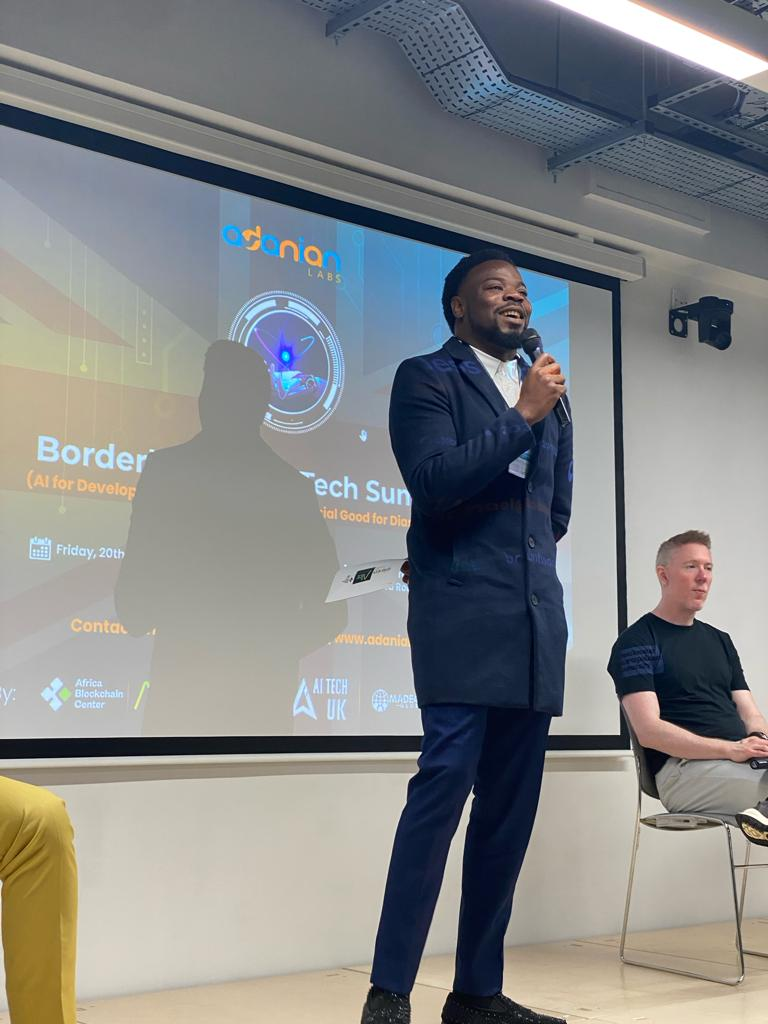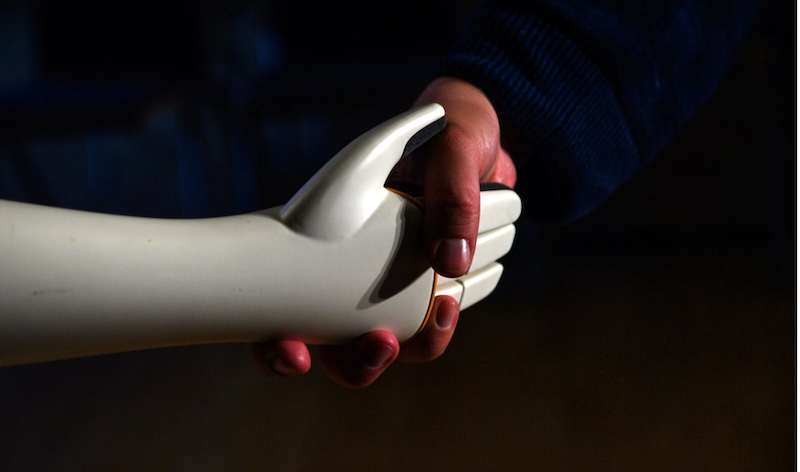It was good that Nigeria’s voice was heard at the AI Summit in Paris, France, even if peripherally. It was heard, nothing can subtract from that. Receiving the Google Chief Executive Officer, Sundar Pichai, who led a team to visit him, President Bola Ahmed TInubu, used the opportunity to tell the world that Nigeria was ready to provide the right environment for the advancement of Artificial Intelligence (AI).
The collaboration with Google and hopefully, many other big tech players, will seek to position Nigeria as a prominent technology and innovation hub, leveraging AI, cloud computing and digital infrastructure to economic growth and enhance global competitiveness.
“The ongoing conversations focus on key initiatives such as expanding digital infrastructure in Nigeria, equipping the workforce with essential digital skills for the future, promoting AI-driven research and innovation, encouraging greater cloud adoption across various industries, and establishing Nigeria as a key player in the global digital economy,” Bayo Onanuga, Special Adviser to the President (Information & Strategy) said in a statement after the meeting.
Dr Bosu Tijani, Minister of Communications and Digital Economy, who was at the Google meeting with the President, declared from the AI Action Summit, that “Artificial Intelligence is an opportunity for humanity to be better, and we cannot afford to take our eyes off it.”
The AI Action Summit was hosted by President Emmanuel Macron who also invited Prime Minister Shri. Narendra Modi of India to Co-Chair the programme with him. The Summit was attended by world leaders, including Vice President JD Vance of the United States and Vice Premier Zhang Guoqing who was special envoy of Chinese President, Xi Jinping, and global tech tycoon who saw the Summit as a veritable opportunity to discuss advancement in AI or to strike new deals
Before the France Summit, there was a freak development from China which rocked the AI world. Like a little rodent sent to pass flatulence at a gathering of the nobles, a little known Chinese company, DeepSeek, from Chinese hedge fund, High-Flyer, announced it has built an AI model DeepSeek-R1 with less than $6m, which is a little sandwich money when compared to $100m Open GPT-4.
The result was instantaneous. Shares of big US tech companies like NVIDIA plummeted on the stock market but rebounded when it was found out a few days later that DeepSeek was reluctant in providing the right answers to questions concerning the Chinese Government. Alas! It has been programmed to hide some truth.
The world leaders and tech behemoths that gathered in France from February 10 – 11, 2025, didn’t talk about that development. Although the gathering was to enable them to share ideas, it was quite obvious that this new variant of technology monster was about competition, about country and about business to profit the people. It was also about prestige. Like the space race in the 60s – Soviet Union had sent Sputnik into space on October 4, 1957, America must land a man in the moon before end of the decade (between 1960-1970) because no other country must be allowed to control space technology (July 20, 1969, America landed a man on the moon); like 5G technology which President Donald Trump, in his first term in office, said was too important for America to leave to any other country to control, AI is a tech race among the big nations as seen in France and it was salutary that Nigeria stood to be listed.
Beautiful speeches were delivered in Paris but the subtle threat wasn’t too far away to detect. So many countries are building their strength around technology, especially AI, where they want to play a lead role or position to attract generous investment.
Speaking to his high profile guests, Macron boasted that “France is back in the AI race.” His boast was boosted by a whopping €109bn which private investors are putting on AI in the next few years. Macron also launched Current AI with an initial $400m investment from the French government, supported by philanthropists and industry partners.
Macron was on a swing when he baited President Trump without mentioning his name, “I have a good friend on the other side of the ocean saying ‘drill, baby, drill.’ Here, there is no need to drill. It’s plug, baby, plug,” as he made allusions to Trump’s push for America to drill more oil as he resumed a new term in office with unrestrained gusto.
President Trump had more than a worthy representative in Vice President, JD Vance, who stated the new government’s position on AI without leaving anything to doubt. No emotions, no equivocations, just cut straight even if that leaves some people very uncomfortable. This new government doesn’t seem to make other people happy except Americans.
There had been previous conferences – the UK AI Safety Summit, November 1-2, 2023, Seoul Summit, May 21-22, 2024, and the European Union AI Act which came into force on August 1, 2024; they all placed emphasis on AI safety and development.
After thanking Macron for a good dinner the previous evening, Vance got down to business. “I’m not here this morning to talk about AI safety, which was the title of the conference a couple of years ago. I’m here to talk about AI opportunity,” he declared.
He explained that the Trump administration believes that AI will have countless, revolutionary applications in economic innovation, job creation, national security, health care, free expression, and beyond. And to restrict its development now would not only unfairly benefit incumbents in the space, it would mean paralyzing one of the most promising technologies we have seen in generations.
Vance proceeded to enunciate America’s position on AI as follows:
Number one, this administration will ensure that American AI technology continues to be the gold standard worldwide and we are the partner of choice for others — foreign countries and certainly businesses — as they expand their own use of AI.
Number two, we believe that excessive regulation of the AI sector could kill a transformative industry just as it’s taking off, and we’ll make every effort to encourage pro-growth AI policies. And I’d like to see that deregulatory flavor making its way into a lot of the conversations in this conference.
Number three, we feel strongly that AI must remain free from ideological bias, and that American AI will not be co-opted into a tool for authoritarian censorship.
And finally, number four, the Trump Administration will maintain a pro-worker growth path for AI so it can be a potent tool for job creation in the United States.
He capped his presentation by saying that of the $700bn that is estimated to be invested in AI by 2028, over half of that money should be invested in the United States of America, which has the technology, a conducive regulatory environment and market to soak up such investment.
Like the Space race, semiconductors and 5G, the AI race started long ago and countries are digging in for advantaged positions and opportunities.
With a population of over 1.4bn people, India enjoys advantage even in market size and quite a few heads will turn their direction in terms of investment. Prime Minister Modi told the Summit: “We are developing AI applications for public good. We have one of the world’s largest AI talent pools. India is building its own Large Language Model considering our diversity. We also have a unique public-private partnership model for pooling resources like compute power. It is made available to start-ups and researchers at an affordable cost. And, India is ready to share its experience and expertise to ensure that the AI future is for Good, and for All.”
Like India, China is ready to share her AI experience with the global community, promote development, safeguard security, and share achievements in the field of AI, with Jinping’s Special Envoy to the Summit, Guoqing, extending invitation to community developers around the world to attend the 2025 Global Developer Conference, holding in Shanghai from February 21-23.
Quite a few people rued the missed opportunity to address AI safety at the Paris, Summit as focus was more on opportunities and benefits to humanity. From the presentations, there is no doubt that nations are sprucing up to attract the multibillion dollars that is projected as investment in the AI sector in the coming years.
To return to where we started, it is good news that Nigeria is positioning to serve as an AI hub in Africa. But first, we must banish all the demons that drive away investment from our clime, and they are too numerous to behold.
Really, I agree with Modi when he said, “We are at the dawn of the AI age that will shape the course of humanity. Some people worry about machines becoming superior in intelligence to humans. But, no one holds the key to our collective future and shared destiny other than us humans.”








